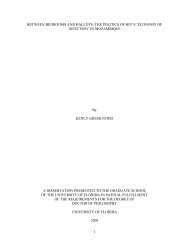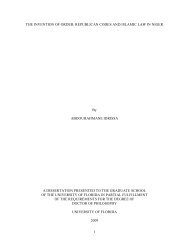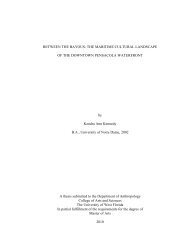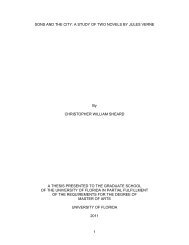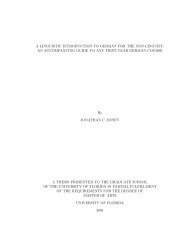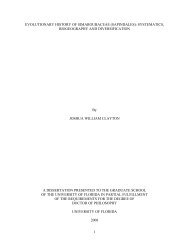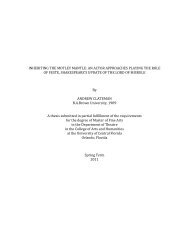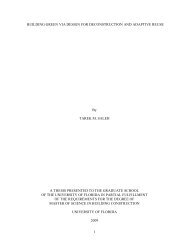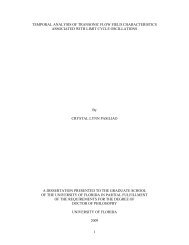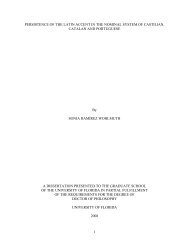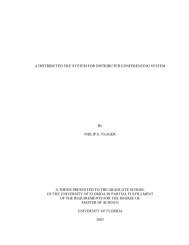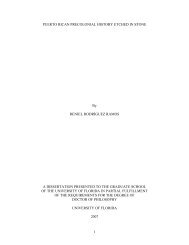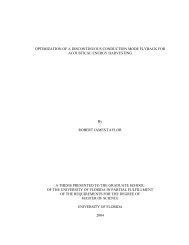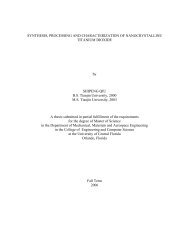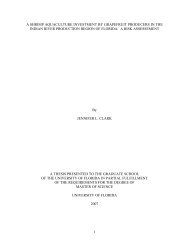B12 METABOLISM IN HUMANS By NICOLE AURORA LEAL A ...
B12 METABOLISM IN HUMANS By NICOLE AURORA LEAL A ...
B12 METABOLISM IN HUMANS By NICOLE AURORA LEAL A ...
Create successful ePaper yourself
Turn your PDF publications into a flip-book with our unique Google optimized e-Paper software.
Chapter 2 of this dissertation reports the identification of the human<br />
27<br />
ATP:cob(I)alamin adenosyltransferase involved in AdoCbl metabolism. An S. enterica<br />
mutant deficient in ATR activity allowed for the isolation of a bovine ATR cDNA.<br />
Subsequent sequence similarity searching was used to identify a homologous human<br />
cDNA. Both the bovine and human cDNAs were independently cloned and<br />
overexpressed in E. coli. Enzyme assays showed that both the bovine and human<br />
enzymes had ATR activity in vitro. Subsequent studies showed that the human cDNA<br />
clone complemented an ATR-deficient S. enterica strain for AdoCbl-dependent growth<br />
on 1,2-propanediol in vivo. In addition, Western blots were used to show that ATR<br />
expression is altered in cell lines derived from cblB methylmalonic aciduria patients<br />
compared with cell lines from normal individuals.<br />
Chapter 3 of this dissertation reports the biochemical properties of the human ATR<br />
and its interaction with methionine synthase reductase. Two common polymorphic<br />
variants of the ATR, which are found in normal individuals, were expressed in E. coli and<br />
purified to apparent homogeneity. Purified ATR variants were used for kinetic studies<br />
and the catalytic properties of both ATR variants including the Vmax and the Km for ATP<br />
and cob(I)alamin were determined. Investigations also showed that the purified<br />
methionine synthase reductase in combination with purified ATR can convert<br />
cob(II)alamin to AdoCbl in vitro. In this system, MSR reduced cob(II)alamin to<br />
cob(I)alamin which was adenosylated to AdoCbl by the ATR enzyme and results<br />
indicated that MSR and ATR interact in such a way that the highly reactive intermediate<br />
(cob(I)alamin) was sequestered. The finding that MSR can reduce cob(II)alamin to<br />
cob(I)alamin for AdoCbl synthesis (in conjunction with the prior finding that MSR



